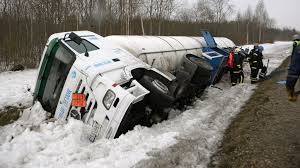…When do I need a Post Accident Drug Test…
Why Post Accident Drug & Alcohol Testing?
- Because it can help to deter drug use and prevent accidents
- Because the greatest financial benefit from drug testing comes from post-accident testing.
- Because it is required for DOT compliant drug & alcohol testing programs.
- Because it is required for various State Drug-Free Workplace Programs.
Post-Accident: Since property damage or personal injury may result from accidents, testing following an accident can help determine whether drugs and/or alcohol were a factor. It is important to establish objective criteria that will trigger a post-accident test and how and by whom they will be determined and documented. Examples of criteria used by employers include: fatalities; injuries that require anyone to be removed from the scene for medical care; damage to vehicles or property above a specified monetary amount; and citations issued by the police. Although the results of a post-accident test determine drug use, a positive test result in and of itself cannot prove that drug use caused an accident. When post-accident testing is conducted, it is a good idea for employers not to allow employees involved in any accident to return to work prior to or following the testing. Employers also need to have guidelines to specify how soon following an accident testing must occur so results are relevant. Substances remain in a person’s system for various amounts of time, and it is usually recommended that post-accident testing be done within 8 hours for alcohol and 32 hours for drugs. Some employers expand the test trigger to incidents even if an accident or injury was averted and hence use term “post-incident.”
Required by regulation – DOT Drug & Alcohol Programs require post-accident testing for incidents that meet certain criteria defined by each DOT specific agency. For trucking and bus companies (DOT FMCSA regulation) this criteria is:
- A test must ALWAYS be conducted on a surviving driver when an accident involving a commercial motor vehicle results in a FATALITY. The driver DOES NOT need to be cited for a moving traffic violation nor does the driver need to be deemed at fault. If a fatality occurs, the driver is tested.
- A test must be conducted if the driver receives a citation for a moving traffic violation AND one or more of the vehicles involved in the accident is towed from the scene of the accident;
- The driver receives a citation for a moving traffic violation AND one or more persons involved in the accident immediately receive medical treatment away from the scene of the accident
From a Workers’ Compensation viewpoint, a Post Accident Drug Testing (PADT) program is the most important piece to a comprehensive drug-free workplace program.
This testing is performed to allow the employer and insurance carrier to dispute the compensability of the injured worker’s claim. Typically, to defeat a workers compensation claim an employer must show two things: first, that the employee was intoxicated at the time of the injury and second that the intoxication caused or contributed to that injury.
In virtually every state (except Arizona) you can challenge a workers compensation claim if there is evidence that the employee was intoxicated at the time of the accident, and if that intoxication “contributed” to the cause of the accident. Some states provide a presumption of both intoxication and cause thereby denying a workers compensation benefit to anyone testing positive; other states provide a presumption of intoxication leaving cause to be proved, and some states provide a specific automatic deduction if there is a positive drug or alcohol test.
One thing is for sure, defeating a workers compensation claim is not automatic, and many times a judge and/or jury may be involved. An employer and the insurance compamy can save a lot money if the claim can be denies based on the employee use of illegal drugs.
The following procedures can help an employer ensure their ability to use the intoxication defense.
- Have a Written and Promulgated Drug-Testing Policy.
- Training & Education
- Always Test an Employee Immediately Following the Accident.
- Take a Written Statement From an Injured Employee After an Accident.
- Take Written Statements of Co-workers.
- Have Drug Tests Collected and Performed by a Reputable Vendor.
- Approve Emergency Care for an Injured Employee, Despite Positive Drug Results.
- Do Not Encourage the Use of Alcohol.
Three main things needed to successfully prove intoxication: a compliant workplace drug-testing program, a properly administered drug-test and a positive test result.







